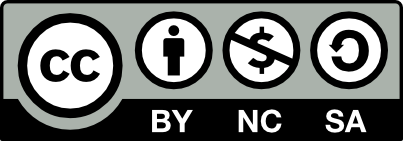Effects of Ispaghula (Psyllium Husk) on Blood Lipid Parameters in Primary Hyperlipidemic Patients.
Main Article Content
Abstract
Objective: Objective of study was to examine the effects of psyllium husk on different lipid profile parameters of
primary hyperlipidemic patients.
Methods: Protocol of research was single blind placebo-controlled study. Research was conducted in Jinnah
Hospital Karachi, Pakistan, from January 2008 to June 2008. Forty hyperlipidemic patients were included in the
study. 20 patients were on placebo as control/compare group, and twenty were on psyllium husk, ten gram daily,
in divided doses for the period of 12 weeks. Hyperlipidemic patients with other diseases were excluded from the
study. Serum cholesterol and triglycerides were estimated by the enzymatic calorimetric method. Serum HDLCholesterol was determined by direct method, at day zero and at last day of the treatment. LDL-Cholesterol was
calculated by Friedwald formula (LDL= Tc- (TG/5 + HDL-C).
Results: Data were expressed as the mean ± SD and “t” test was applied to determine statistical significance of
results. P value lesser than 0.05 was the limit of significance. Two patients discontinued taking drug given, due to
metallic test of psyllium husk. Psyllium decreased serum total cholesterol from 228.27±4.89 mg/dl to 199.22 ±
2.30 mg/dl, triglycerides from 169.27± 9.92 mg/dl to 164.5±8.56 mg/dl, LDL-Cholesterol from 159.72 ± 5.70 to
129.55± 2.81 mg/dl, and increased serum HDL-Cholesterol from 34.61±1.85 to 36.77±1.96 mg/dl in 90 days of
treatment. Results of all parameters were significant when paired ‘t’ test was applied for result analysis.
Conclusion: At end of the research work we concluded that psyllium is very effective agent to maintain lipid profile parameters at normal limits in hyperlipidemic patients.
Keywords: Triglycerides, Primary hyperlipidemia, Heart diseases, Psyllium, Total-Cholesterol , LDL-Cholesterol,
hDL-Cholesterol.
Downloads
Article Details

This work is licensed under a Creative Commons Attribution-NonCommercial-NoDerivatives 4.0 International License.
Journal of Muhammad Medical College (J Muhammad Med Coll) belief that all researches are basically conducted for the benefit of humanity. Research is the product of an investment by society and consequently its fruits should be returned in a transparent fashion to all humankind without any discrimination.
Journal of Muhammad Medical College is an open access journal which means that all content is freely available without charge to users or / institution. When used non-commercially all users are allowed to read, download, copy, distribute, print, search, or link to full text articles in this journal without asking prior permission from the publisher or author as long as original author(s) are acknowledged.
Journal of Muhammad Medical College operate under Creative Common License CC-BY-SA that allow reproduction of articles free of charge, for non-commercial use only and with the appropriate citation information. All authors publishing with Journal of Muhammad Medical College accept these as the terms of publication.

This work is licensed under a Creative Commons Attribution-NonCommercial-ShareAlike 4.0 International License